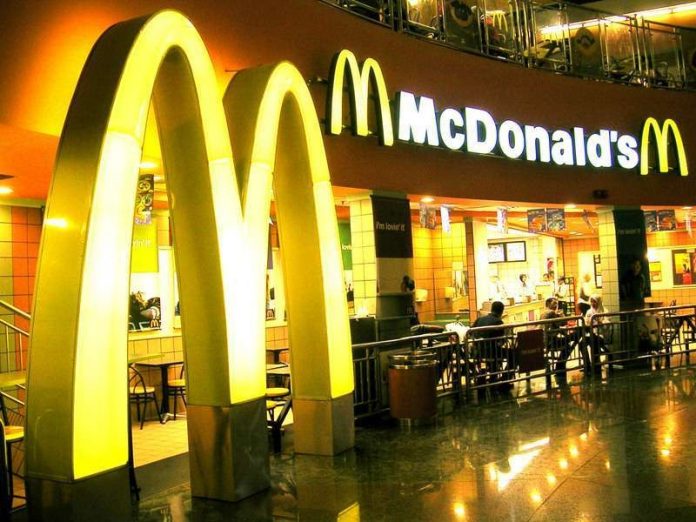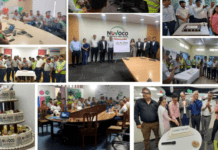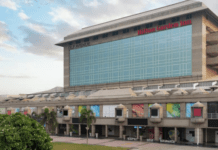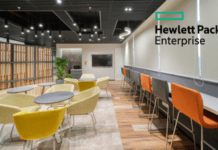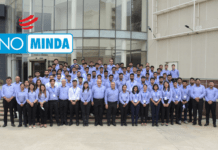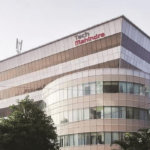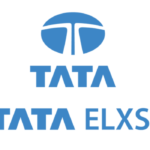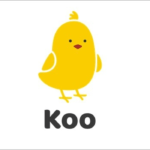The programme aimed at offering flexibility at work, brings in the ‘fun’ element for its young workforce, and also helps them build a future.
It is not just meals that move quickly at fast food chains, but also talent. With the ground staff hopping jobs rapidly, high attrition has been a huge challenge for most fast-food retail chains, for quite some time now. It is not just attrition, but also the perception about these jobs – of their being mechanical and boring – that increases attrition, which in turn impacts customer satisfaction.
McDonald’s, the American fast food chain has also been dealing with similar challenges. For a restaurant chain, the business focus is always on building relationships with customers, enhancing their experience and staying connected with them. However, until three years ago, McDonald’s was facing low customer satisfaction and retention owing to high attrition rate, while customer feedbacks revealed the crew was mechanical in their behaviour and lacked ‘human-touch’.
The attrition rate then—though still below the industry standard by 10–12 per cent—was a concern that needed to be looked into. It was then that McDonald’s in India, came up with an employee value proposition programme —3 F—wherein the three Fs stand for flexibility, fun and future.
The programme aims to offer flexibility at work, bring in the fun element for employees keeping in mind the young workforce and also help them build a Future. Within three years of its launch the 3F programme brought down the attrition rate by 25–30 per cent below the industry average, with attrition at the crew level falling by a remarkable 30 per cent.
Seema Arora Nambiar, senior vice president- strategy, innovation and capability, McDonald’s India (West & South), shares details with HRKatha.
“The beauty of the programme is that so much planning goes into designing the restaurant that employees don’t need many functional skills to deliver a consumer experience and a larger focus is on development of their interpersonal skills. These skills get imbibed within the employees and stay with them forever,” she says.
Since the Company hires first-time job seekers at the store level, it focuses on offering them ‘skills for life’ rather than emphasising on ‘functional knowledge’ transfer. The skills are taught through structured training programmes within the curriculum of their crew development.
The objective is to make employees understand the job relevance, importance of working in a team, interacting with co-employees and customers, delivering results in a team and more. “We believe that the stability of employees is important because it strengthens customer connect. In terms of people metrics, the employee turnover rates have seen a remarkable improvement and the employees themselves are visibly happier and satisfied with their work,” Nambiar adds.
Additionally, more than 60 per cent of the employees are pursuing education along with their jobs and McDonald’s offers them flexibility in terms of working hours, in accordance with their schedule. They are also granted leaves during exams. Since there is a need for extreme clarity in the number of hours the employees clock, individual attendance is tracked through biometrics. The crew can easily log in to the system and track attendance, salary and numbers of hours logged in, training levels and much more.
Providing all this flexibility requires a planned process at the back end. There is a scheduling software that works at the back end where employees put in their availability, and the system generates peaks and troughs of the business in the operating hours, which helps the manager understand the requirement of employees. Once the schedule is delivered, the crew members confirm their availability and are allocated shifts based on their request. It is always published a week in advance to help them plan the process.
In order to help employees see a bright future and work towards it, McDonald’s has an employee- development programme with trainings structured for employees starting from when they join in as freshers, until the senior levels. The trainings are conducted over 7–10 days in a year. The managers build individual development plans for employees, ensuring continuous improvement and building on their skills to help them move and grow laterally as well.
Those who take up these courses, move on to become regional managers or area managers and even manage the profit centres.
More than 60 per cent of employees in the corporate office now, had at one point in time, started their career at shop floors and restaurants before moving to the business side.
Additionally, the restaurant managers can opt for a management-development programme from the Welingkar Institute, which has been designed keeping in mind the requirement of the Company. Employees further have flexibility to attend the course for a duration of over 15 months alongside their jobs.
The Company supports employee education by granting them leaves for classes, in addition to the other leaves entitled to them. The course is structured to provide employees both classroom and industry-based knowledge by means of projects and assignments. The fee is also subsidised for employees. It assists individual employees procure education loan for the course.
Those who take up these courses, move on to become regional managers or area managers and even manage the profit centres. Career conversations take place regularly over the year. These courses may not offer new positions immediately but certainly help build their capability to do more.
The fun part, on the other hand, is aimed at making the work environment lively. There are crew rooms, where employees can relax and indulge in social activities. Employees are recognised for their performance during the crew meetings and there is a separate budget allocated to store managers so that they can reward employee performance on a daily basis. The best employees are chosen based on the feedback that captures the quality of their interaction with customers.
To measure impact, McDonald’s conducts employee-opinion surveys twice a year to make sure they are in tune with their internal and external customers’ needs. Through the programme, the Company has not only been able to significantly reduce attrition, but to succeed in building an energised workforce and create feel-good moments for its customers, through great service and increased customer connect.
Value our content... contribute towards our growth. Even a small contribution a month would be of great help for us.
Since eight years, we have been serving the industry through daily news and stories. Our content is free for all and we plan to keep it that way.
Support HRKatha. Pay Here (All it takes is a minute)





